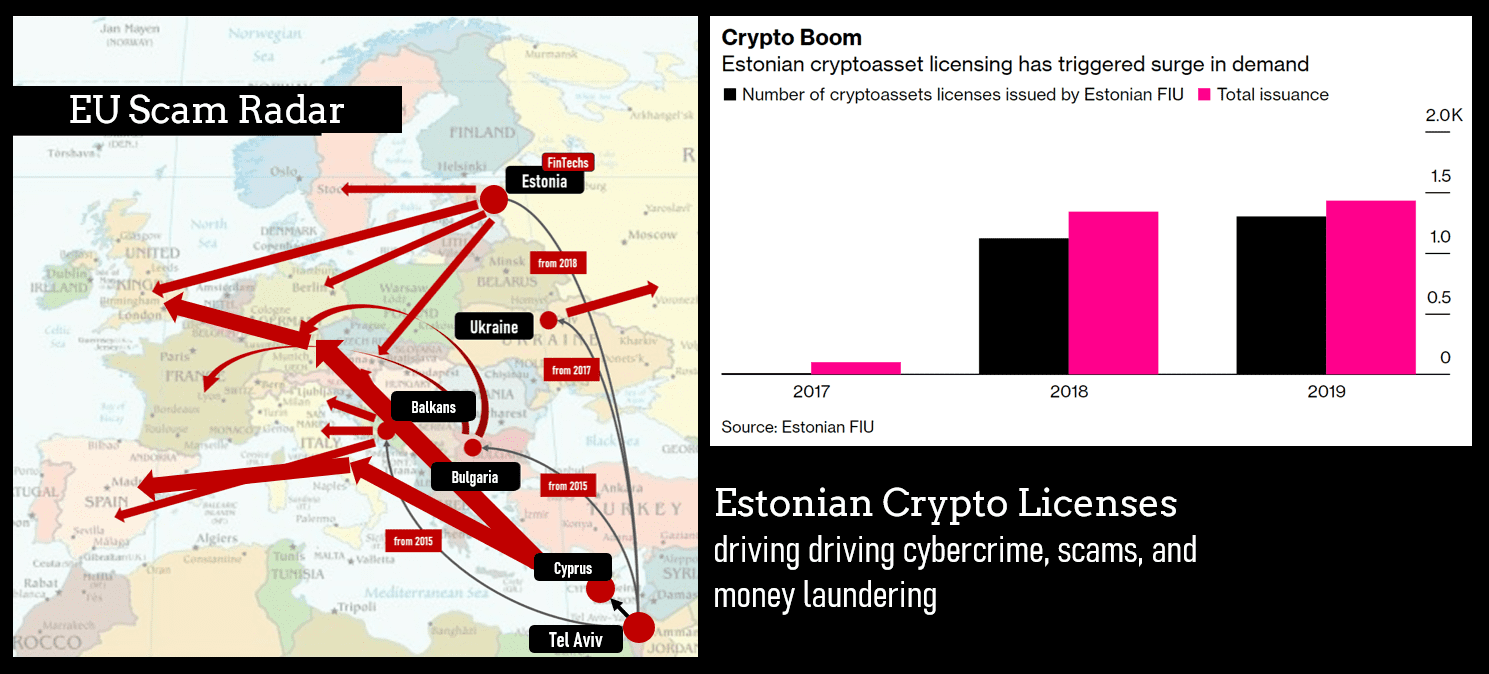In June 2021, Matis Maeker (LinkedIn) resumed his post as Estonia’s Financial Intelligence Unit (FIU) head. The agency is the supervising authority for the thousands of crypto licenses that have been issued over the last couple of years. Maeker wants to scrap its current regulatory regime for cryptocurrencies and reboot it, he said in an interview with the local news outlet Eesti Ekspress. In total, the FIU issued more than 3,000 licenses (report here). In 2020, the FIU revoked 1,800 licenses, but around 400 crypto licenses are still active, more than all other EU member states issued.
EU crypto money-laundering hub
Estonia has been known among crypto entrepreneurs, cybercriminals, scammers, and money launderers as a super-friendly jurisdiction, to say the least. Estonia became the crypto-based money-laundering hub in the EU. Getting a license there has been easy. All it needs is to retain one of the many local consulting companies and a few thousand Euros. A local nominee director and a trust arrangement for the shares will then ensure that the FIU is happily granting a license, it seems.
We know some nominee directors who are simultaneously active in several regulated Estonian crypto companies. Or are not active at all. How is this supposed to work?
This weird regulatory approach may change now under the tenure of Matis Maeker. That’s good news for retail investors and the safety of the EU cyberfinance space.
Tens of billions
Talking to journalists, the Financial Intelligence Unit (FIU) chief said crypto companies had made “tens of billions of euros per year,” and that most of that money ended up in other countries and didn’t help the Estonian economy, according to the translated version of the interview by ERR.
Their only goal is to get an Estonian license and use it to turn over very large sums, while Estonia gets nothing out of it.
Matis Maeker
Maeker proposed stricter rules for licensing crypto startups in Estonia and raising the minimum capital requirements from €12,000 (US$13,900) to €350,000 ($405,000). He said a bill proposing regulations for crypto licenses will be introduced in the Estonian parliament. Meanwhile, existing crypto licenses should be revoked, Maeker suggested. This would be the end of the Estonian crypto money-laundering hub.
We congratulate Michael Maeker for his precise analysis and courage to take action against the Estonian Crypto Money-laundering Hub.
